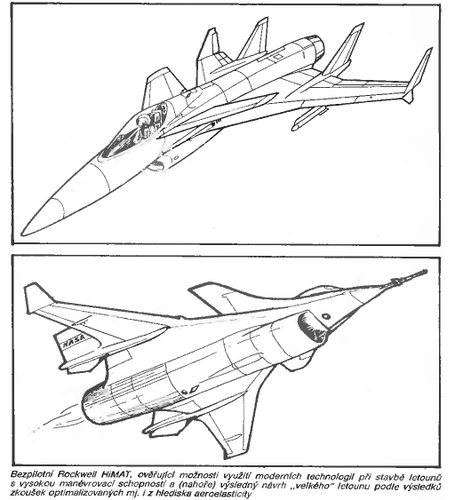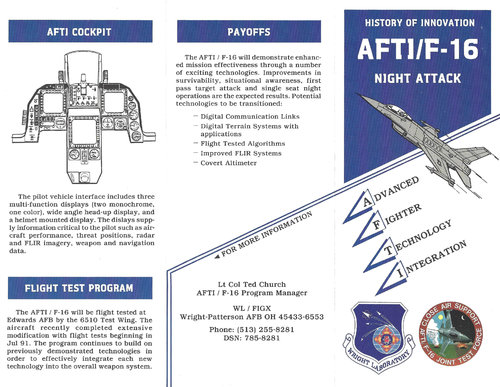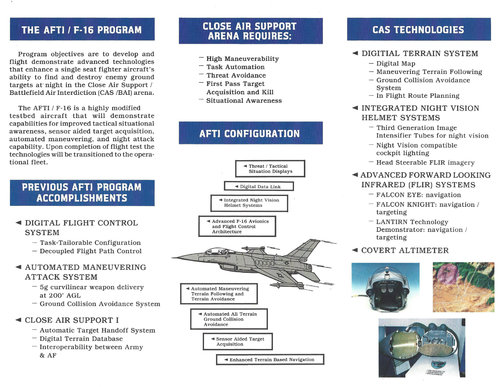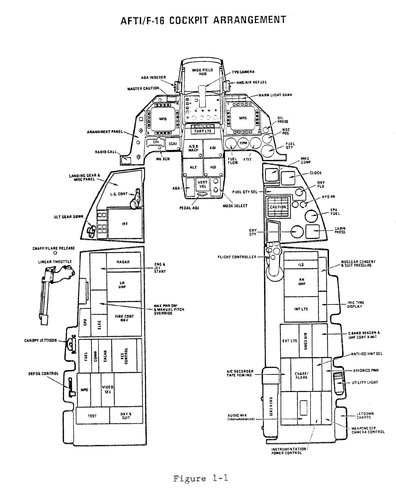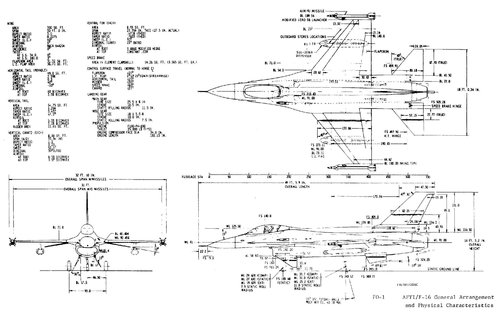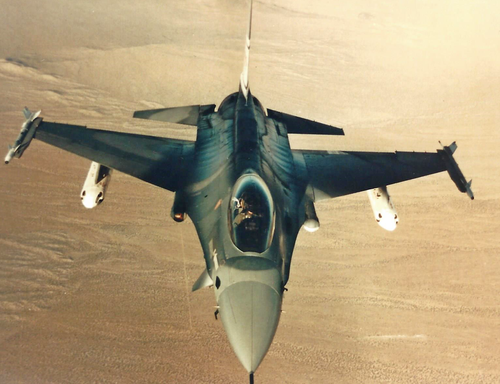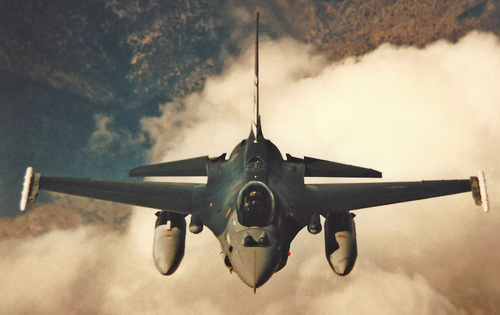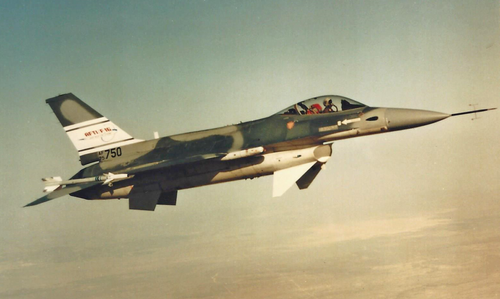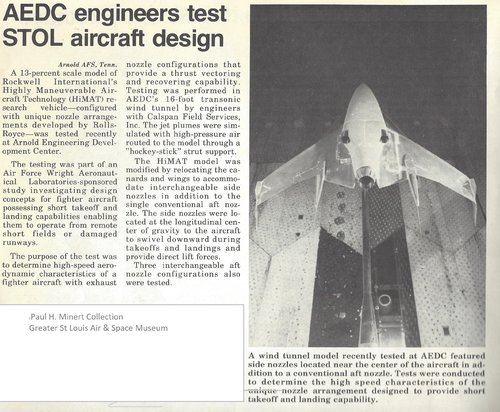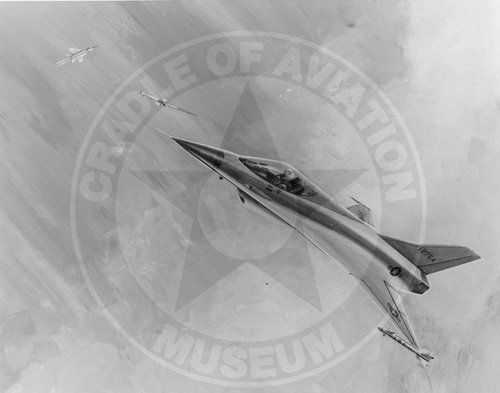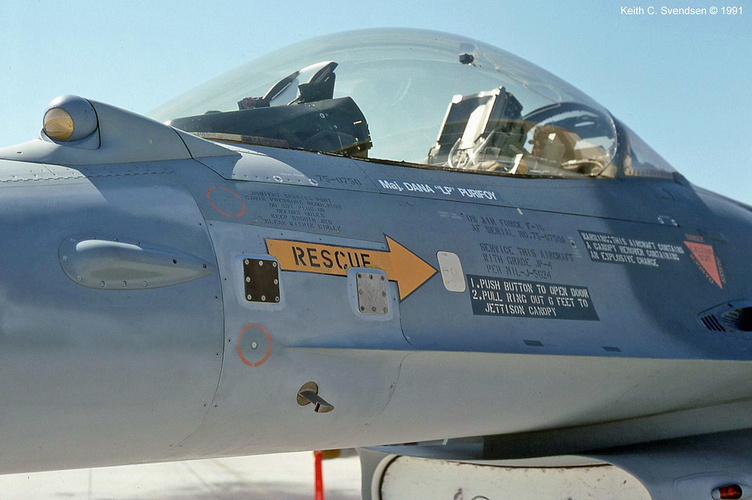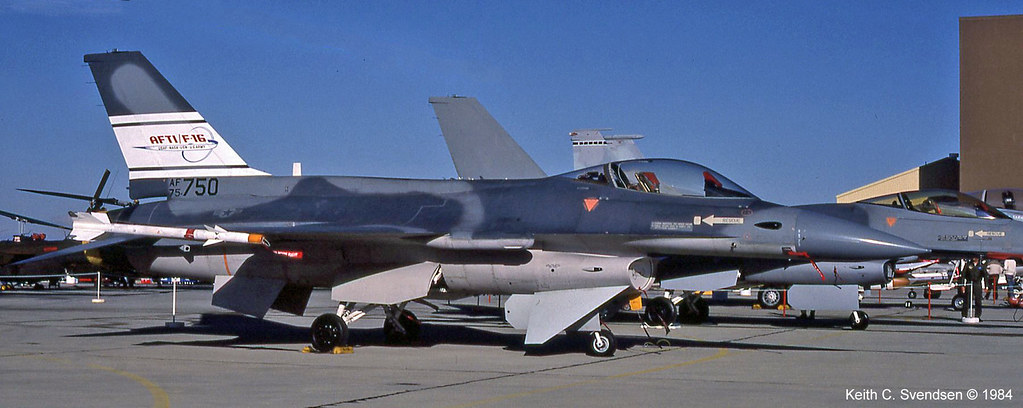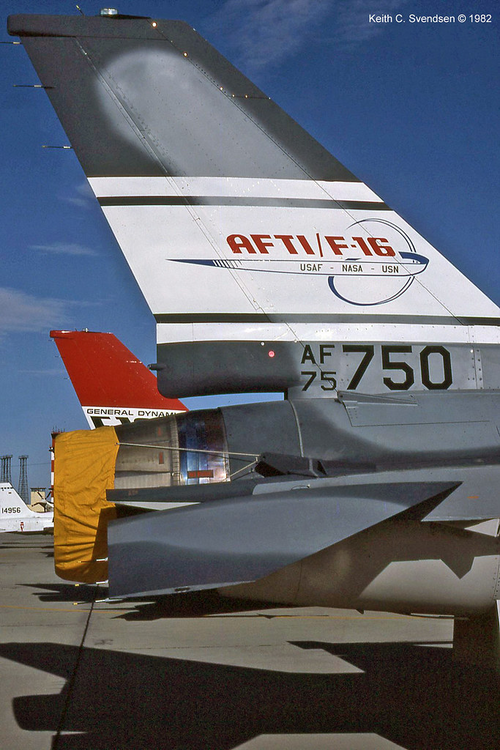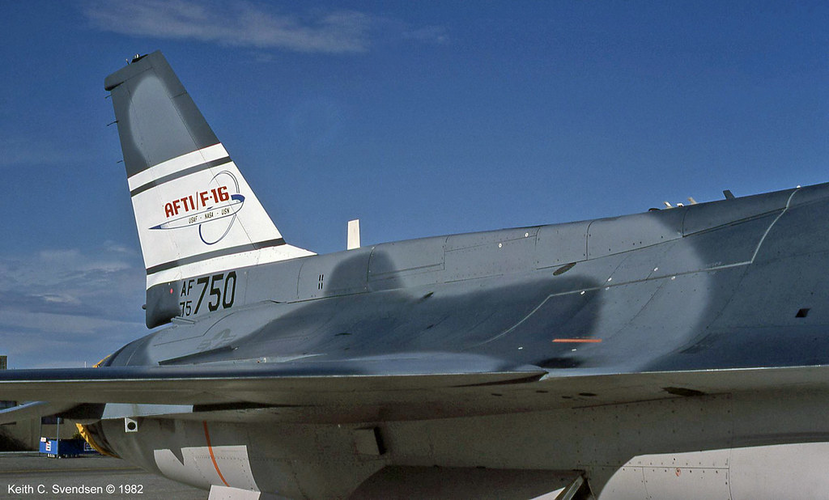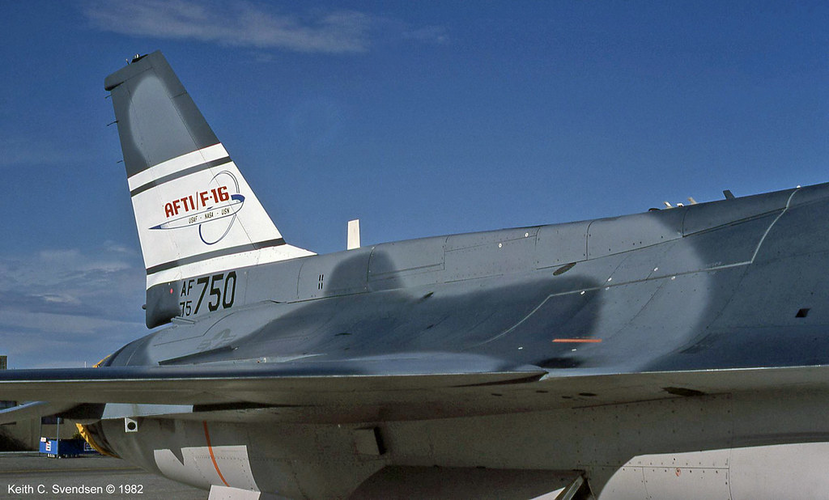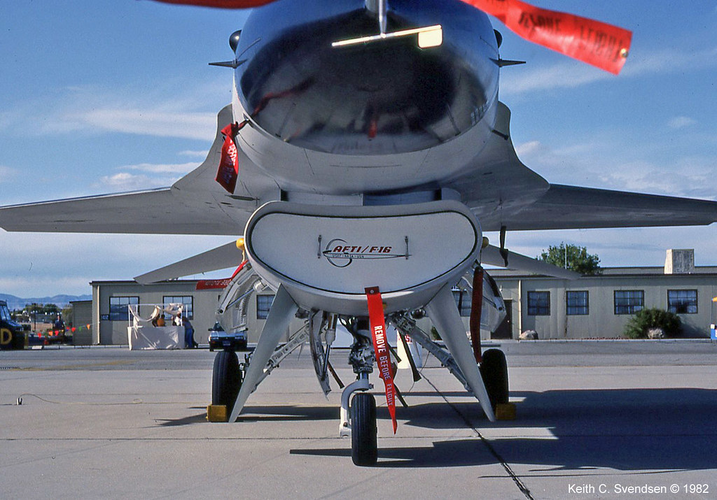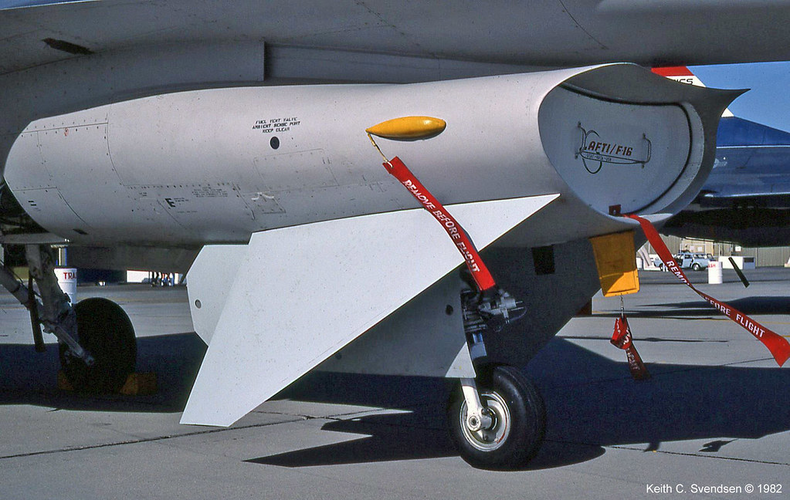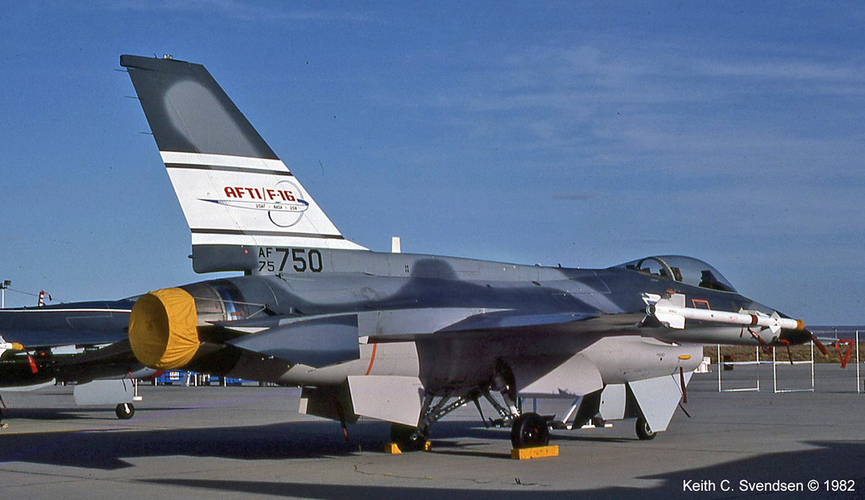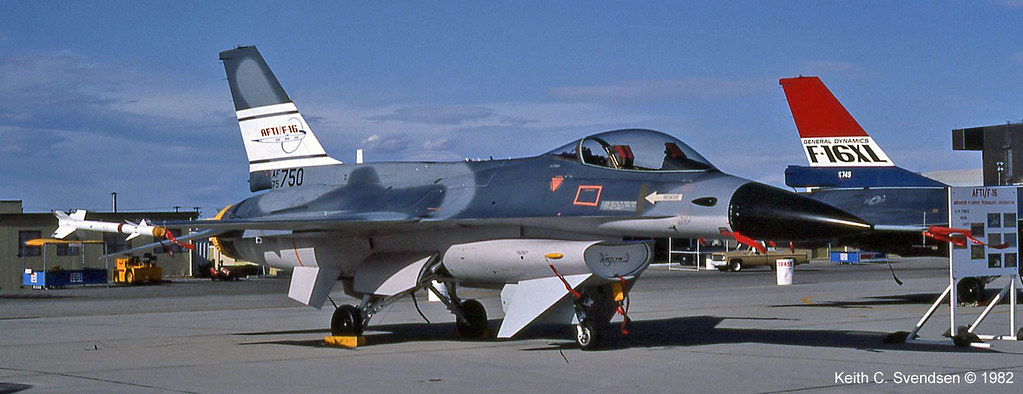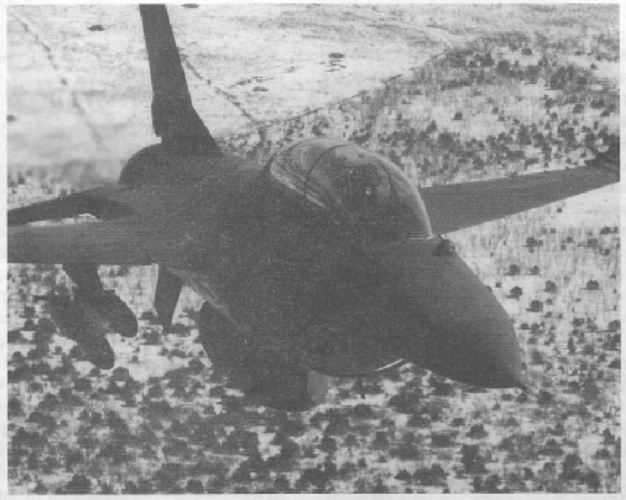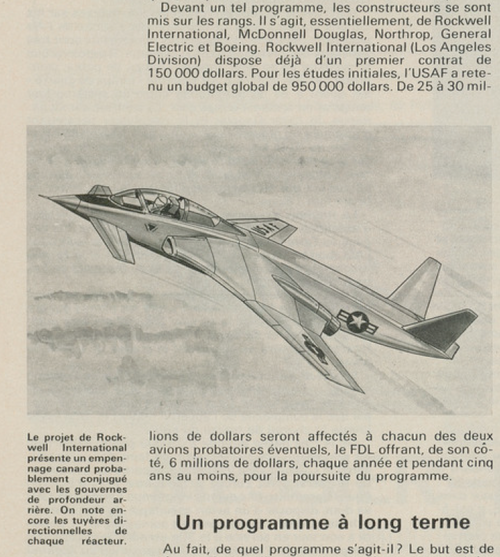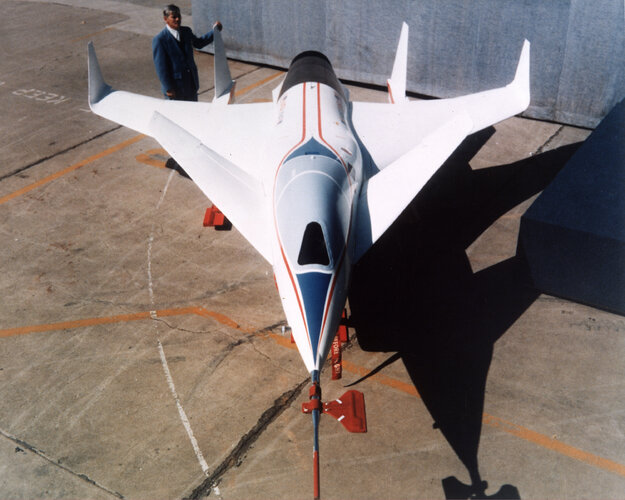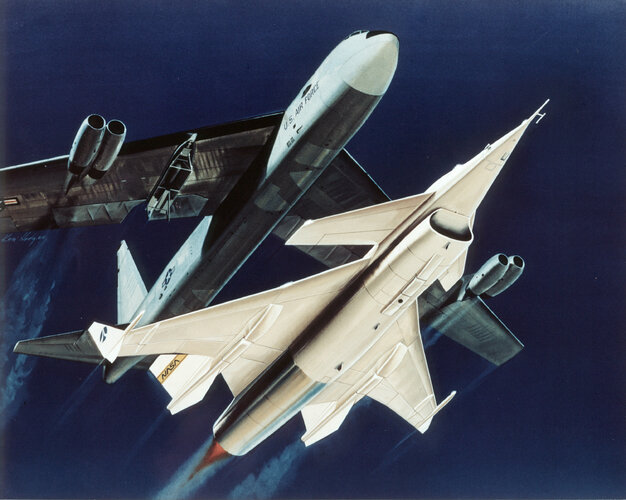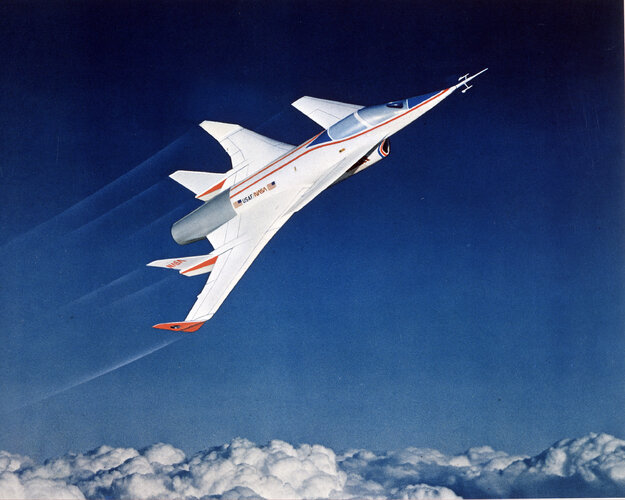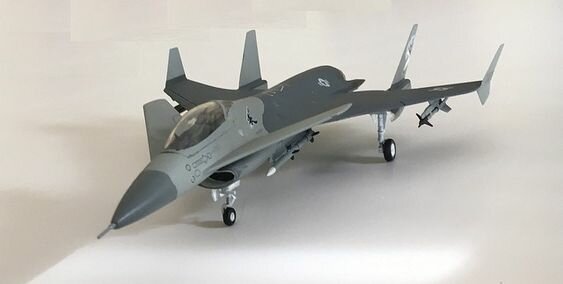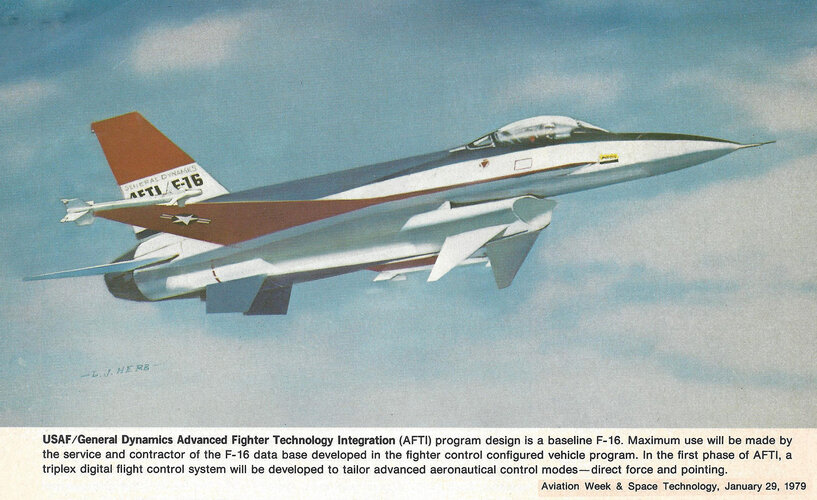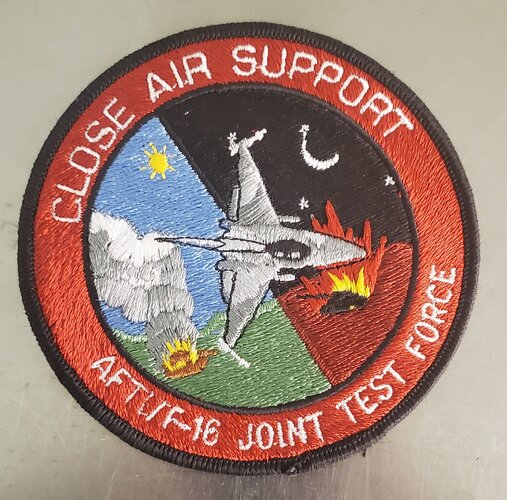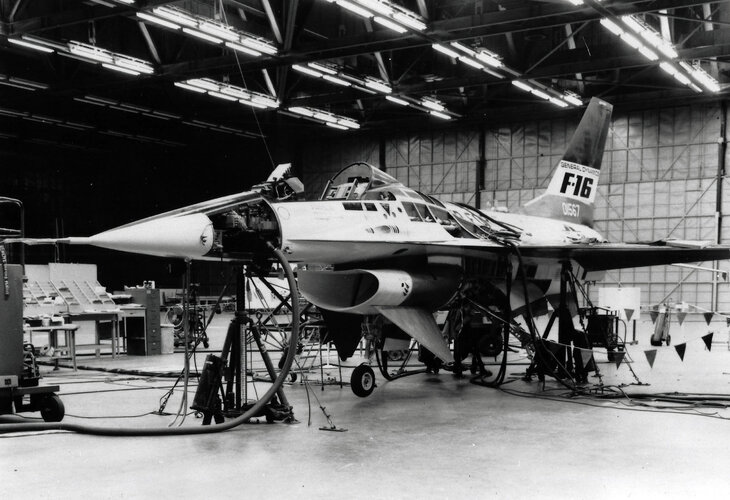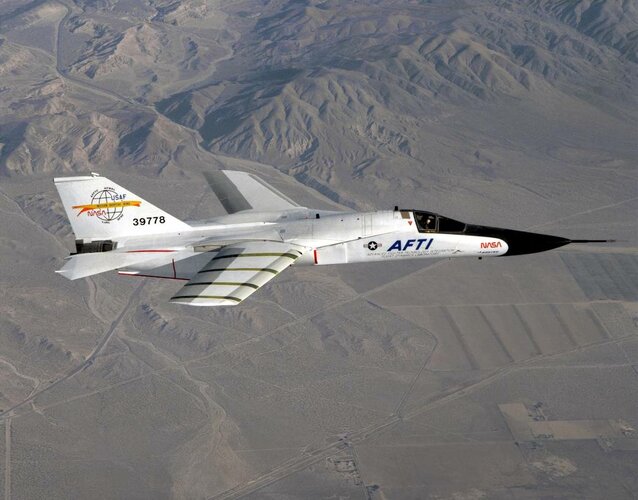You are using an out of date browser. It may not display this or other websites correctly.
You should upgrade or use an alternative browser.
You should upgrade or use an alternative browser.
HIMAT and the other AFTI Projects
- Thread starter Andreas Parsch
- Start date
Squidly Doom
ACCESS: Restricted
- Joined
- 11 February 2020
- Messages
- 1
- Reaction score
- 1
Nice!
I just can't understand how most of the HiMat designs would have adequate pitch control? They're laid out like canard-deltas but they use a higher aspect ratio wing, it seems like the elevons wouldn't have as much leverage as they would on something like a Gripen or Rafale?
I just can't understand how most of the HiMat designs would have adequate pitch control? They're laid out like canard-deltas but they use a higher aspect ratio wing, it seems like the elevons wouldn't have as much leverage as they would on something like a Gripen or Rafale?
- Joined
- 29 January 2008
- Messages
- 914
- Reaction score
- 2,028
- Joined
- 1 November 2009
- Messages
- 638
- Reaction score
- 426
- Joined
- 3 June 2006
- Messages
- 3,086
- Reaction score
- 3,907
Three (Fairchild-) Republic Aviation AFTI & Advanced Concept Aircraft paintings, which I have never seen before. 

I found them at the Cradle of Aviation Museum web archive.


 Some more wind tunnel pictures can be found there, too.
Some more wind tunnel pictures can be found there, too.
Link:
 cdm16694.contentdm.oclc.org
If this is the wrong topic or these pictures have been posted before, please let me know.
cdm16694.contentdm.oclc.org
If this is the wrong topic or these pictures have been posted before, please let me know.
I found them at the Cradle of Aviation Museum web archive.



Link:
CONTENTdm
Last edited:
- Joined
- 8 March 2009
- Messages
- 1,046
- Reaction score
- 1,271
Attachments
- Joined
- 26 May 2006
- Messages
- 34,692
- Reaction score
- 15,527
More
Here is the same aircraft in color;
apparition13
I really should change my personal text
- Joined
- 27 January 2017
- Messages
- 599
- Reaction score
- 1,087
A question about the F-16 tailess canard design. Is there anything more on this canard configuration? I've only seen this image of it; was it a real proposal, or a misunderstanding on the part of the artist of what the canards on the F-16 AFTI proposal actually looked like?Here are two AFTI projects for modified F-15 and F-16
Source:
- Klaus Huenecke, Modern Combat Aircraft Design Airlife 1984 (based on article cited above)
- Joined
- 13 June 2007
- Messages
- 2,172
- Reaction score
- 3,065
Good Day All -
From the Gerald Balzer collection, a number of drawings of the HiMat for your perusal....
Enjoy the Day! Mark
From the Gerald Balzer collection, a number of drawings of the HiMat for your perusal....
Enjoy the Day! Mark
Attachments
-
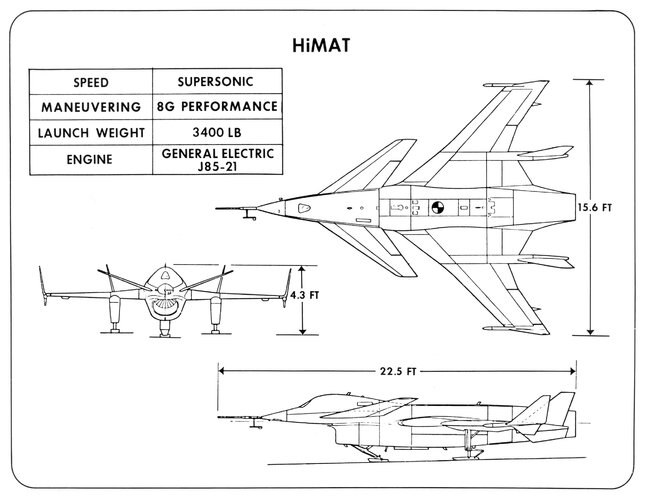 zNAR HiMat 3 View.jpg408.3 KB · Views: 346
zNAR HiMat 3 View.jpg408.3 KB · Views: 346 -
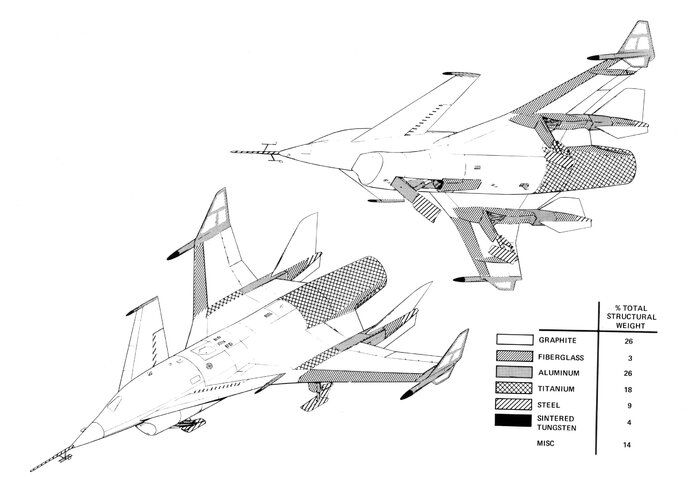 zNAR HiMat Airframe Materials.jpg448.5 KB · Views: 294
zNAR HiMat Airframe Materials.jpg448.5 KB · Views: 294 -
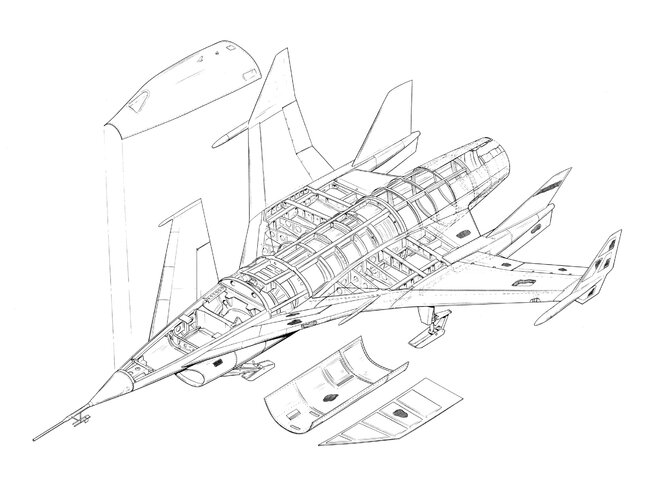 zNAR HiMat Structure.jpg541.4 KB · Views: 295
zNAR HiMat Structure.jpg541.4 KB · Views: 295 -
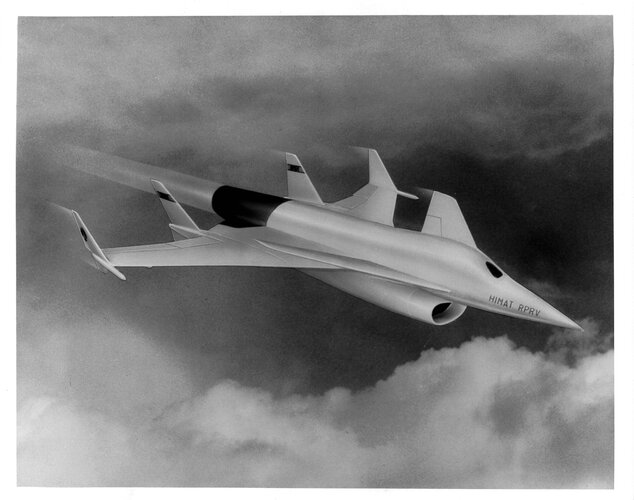 zNAR HiMat Flight Artwork - 2.jpg908.3 KB · Views: 270
zNAR HiMat Flight Artwork - 2.jpg908.3 KB · Views: 270 -
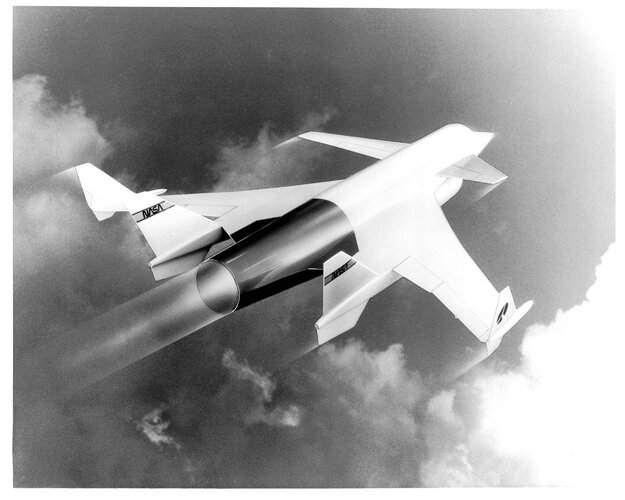 zNAR HiMat Flight Artwork.jpg1,013.8 KB · Views: 253
zNAR HiMat Flight Artwork.jpg1,013.8 KB · Views: 253 -
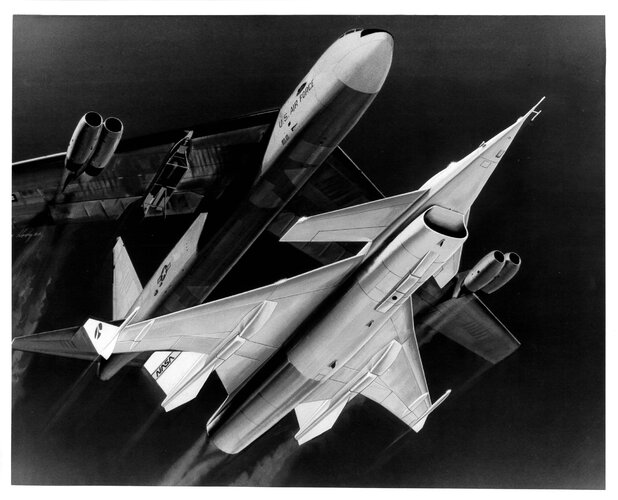 zNAR HiMat Launch from B-52 Artwork - 1.jpg737.3 KB · Views: 269
zNAR HiMat Launch from B-52 Artwork - 1.jpg737.3 KB · Views: 269 -
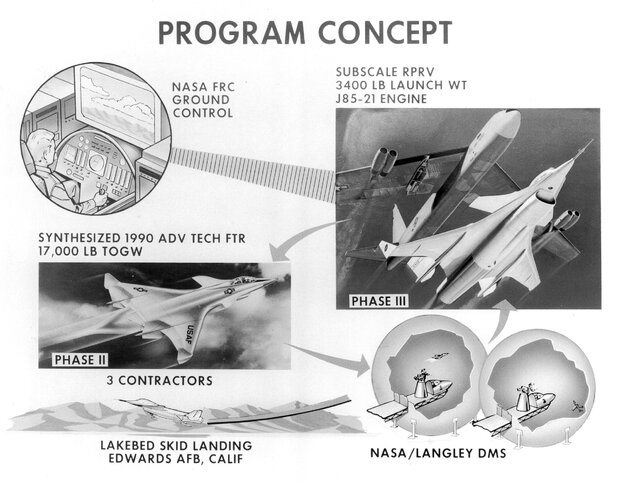 zNAR HiMat Program Concept.jpg969.1 KB · Views: 272
zNAR HiMat Program Concept.jpg969.1 KB · Views: 272 -
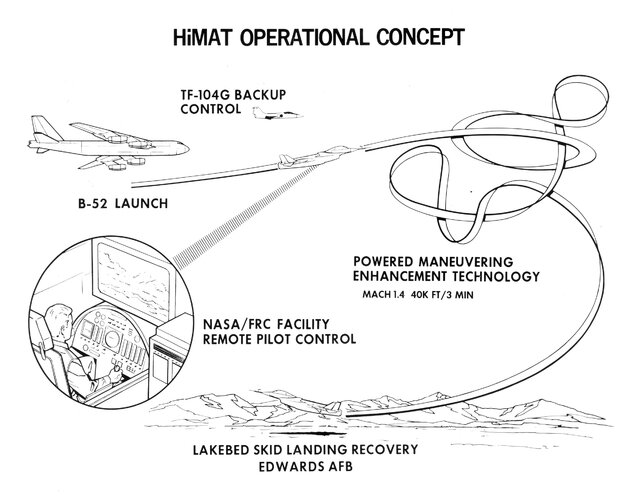 zNAR HiMat Operational Concept.jpg493.6 KB · Views: 270
zNAR HiMat Operational Concept.jpg493.6 KB · Views: 270
- Joined
- 13 June 2007
- Messages
- 2,172
- Reaction score
- 3,065
isayyo2
Lurker alert
- Joined
- 24 November 2011
- Messages
- 1,131
- Reaction score
- 2,309
Attachments
Last edited:
- Joined
- 2 May 2007
- Messages
- 484
- Reaction score
- 1,912
Some nice (with hi-res available) 2D nozzle mock-up pics from National Aeronautics and Space Administration. John H. Glenn Research Center at Lewis Field via National Archives and Records Administration / Wikimedia
2D 2 DIMENSIONAL NOZZLE MOCKUP ON HIMAT HIGHLY MANEUVERABLE AIRCRAFT TECHNOLOGY







2D 2 DIMENSIONAL NOZZLE MOCKUP ON HIMAT HIGHLY MANEUVERABLE AIRCRAFT TECHNOLOGY
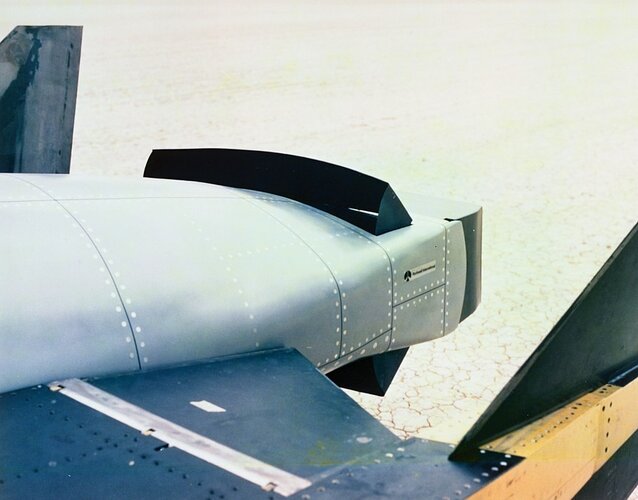
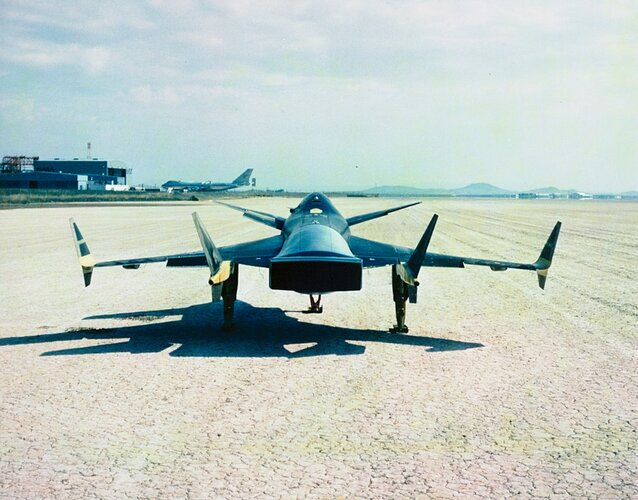
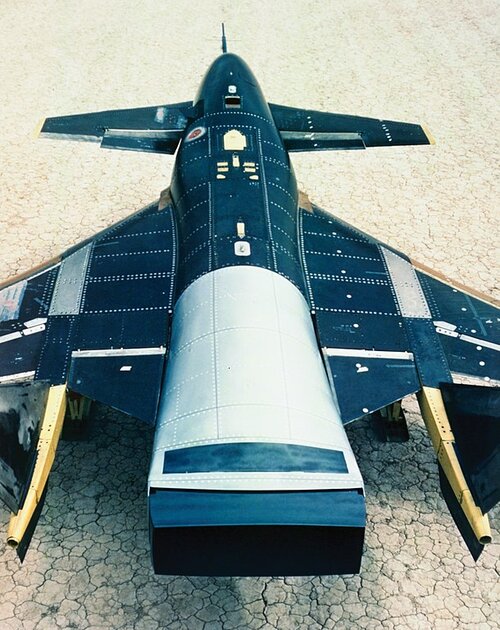
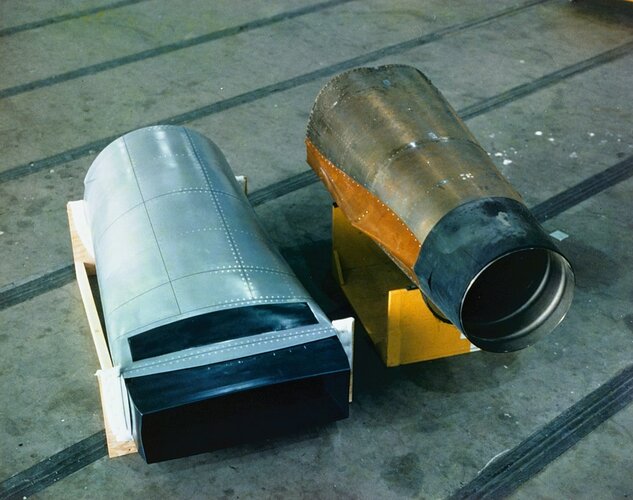
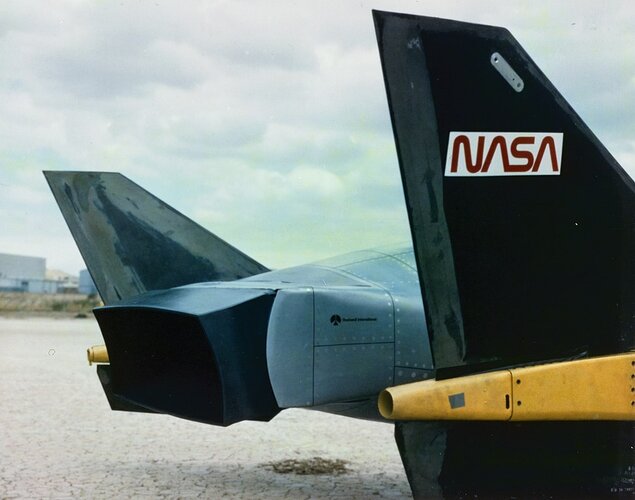
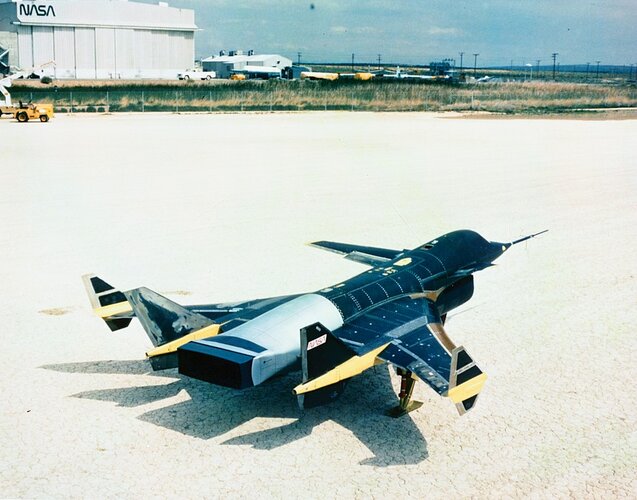
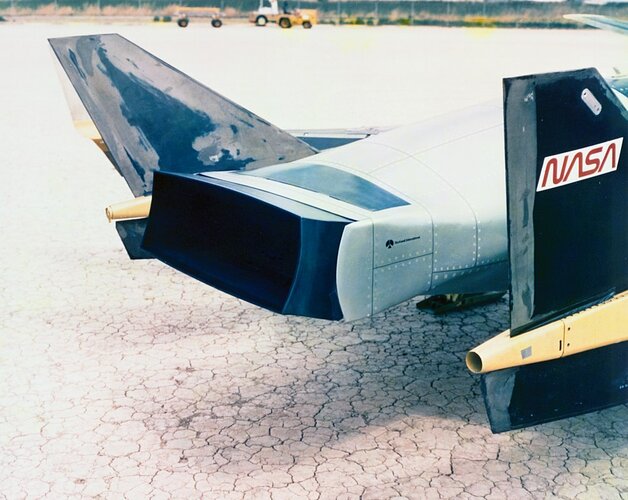
- Joined
- 27 December 2005
- Messages
- 17,672
- Reaction score
- 25,775
Very nice shots - thanks for sharing!
original source is NARA website:
original source is NARA website:
Last edited:
jsport
what do you know about surfing Major? you're from-
- Joined
- 27 July 2011
- Messages
- 7,696
- Reaction score
- 5,671
This places high premium on achieving a first pass kill while minimizing exposure to the threat. Also, because of the large inventory of unguided conventional munitions in our arsenal , our tactical air force must be able to accomplish ther mission while using these low-cost weapons.
integration of flight and fire controls ..outside the bandwidth of the human pilot..
This allows for weapon delivery during dynamic maneuver,....
integration of flight and fire controls ..outside the bandwidth of the human pilot..
This allows for weapon delivery during dynamic maneuver,....
jsport
what do you know about surfing Major? you're from-
- Joined
- 27 July 2011
- Messages
- 7,696
- Reaction score
- 5,671
mentioning the offaxis ability to deliver the cheapest munition (20mm fire) although previously appearing a couple times on SPF it is always good.. guess the F-15 smart aiming gun effort has also been mentioned on some thread.
firing head-on then the craft veering away by itself sounds unnerving but potentialy a winner
low altitude infil must continue to be practiced and a new 5th+gen should have all these revolutionary F-16 tricks like the flat turn and vertical translation w/o pointing the the nose up or down!.
firing head-on then the craft veering away by itself sounds unnerving but potentialy a winner
low altitude infil must continue to be practiced and a new 5th+gen should have all these revolutionary F-16 tricks like the flat turn and vertical translation w/o pointing the the nose up or down!.
Last edited:
jsport
what do you know about surfing Major? you're from-
- Joined
- 27 July 2011
- Messages
- 7,696
- Reaction score
- 5,671
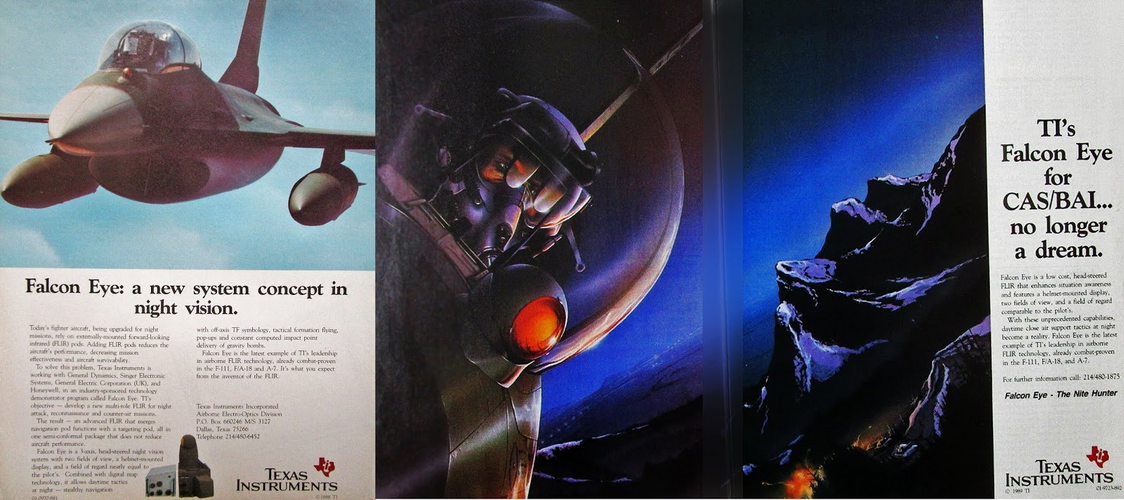
F-16 - Den mest macho varianten av dem alle - Tyler Rogoway
Here's What The Ball On The Nose Of UAE's Block 60 F-16E/F Desert Falcon Does A significant portion of the correspondence and question...
Worked on this at Grumman, and no, it was unmanned.Grumman AFTI/HIMAT submission, shown as a manned fighter in this artwork.
Source:
Steve Pace, X-29, Aero Series, 1991
- Joined
- 27 December 2005
- Messages
- 17,672
- Reaction score
- 25,775
The proposal wasn't manned, agreed, but this artwork seems to have a cockpit and a pilot? There is similar artwork of Rockwell's HIMAT as a real fighter.Worked on this at Grumman, and no, it was unmanned.Grumman AFTI/HIMAT submission, shown as a manned fighter in this artwork.
Source:
Steve Pace, X-29, Aero Series, 1991
Remember HiMAT was a small thing that weighed in around 5-6,000 lbs, so any amount of control surface force is more significant than on a full-sized one...which, then would likely have all-moving canards.Nice!
I just can't understand how most of the HiMat designs would have adequate pitch control? They're laid out like canard-deltas but they use a higher aspect ratio wing, it seems like the elevons wouldn't have as much leverage as they would on something like a Gripen or Rafale?
- Joined
- 2 August 2006
- Messages
- 3,251
- Reaction score
- 1,508
It's not that simple. Generally speaking, the smaller vehicle would have lower control power as well. Go look at the model Grumman used for developing the X-29 flight controls. The wings and canards were substantially larger than fuselage, proportionally speaking. You have to use the Reynolds number to properly get a scale affect that is correlated. But they weren't trying to do that with HiMAT, they were just using it to demonstrate advanced technologies that could be applicable to full size vehicles.Remember HiMAT was a small thing that weighed in around 5-6,000 lbs, so any amount of control surface force is more significant than on a full-sized one...which, then would likely have all-moving canards.Nice!
I just can't understand how most of the HiMat designs would have adequate pitch control? They're laid out like canard-deltas but they use a higher aspect ratio wing, it seems like the elevons wouldn't have as much leverage as they would on something like a Gripen or Rafale?
aonestudio
I really should change my personal text
- Joined
- 11 March 2018
- Messages
- 2,959
- Reaction score
- 7,454

HIMAT HIGHLY MANEUVERALBE AIRCRAFT TECHOLOGY INLET MODEL IN THE 10X10 FOOT WIND TUNNEL SHOP - NARA & DVIDS Public Domain Archive Public Domain Search
Download Image of HIMAT HIGHLY MANEUVERALBE AIRCRAFT TECHOLOGY INLET MODEL IN THE 10X10 FOOT WIND TUNNEL SHOP. Free for commercial use, no attribution required. The original finding aid described this as: Capture Date: 11/15/1979 Photographer: DONALD HUEBLER Keywords: Larsen Scan Location...
nara.getarchive.net
F-2
ACCESS: Top Secret
- Joined
- 22 May 2020
- Messages
- 865
- Reaction score
- 1,664
- Joined
- 26 May 2006
- Messages
- 34,692
- Reaction score
- 15,527
Just Model.
If this aircraft was entered a production,it would be a star in dogfight.
- Joined
- 31 December 2006
- Messages
- 801
- Reaction score
- 362
Tony Landis program retrospective for the AFLCMC History Office. Highly bueno.
- Joined
- 27 December 2005
- Messages
- 17,672
- Reaction score
- 25,775
NASA HIMAT press release
https://ntrs.nasa.gov/api/citations/19780077722/downloads/19780077722.pdf
https://ntrs.nasa.gov/api/citations/19780077722/downloads/19780077722.pdf
- Joined
- 27 December 2005
- Messages
- 17,672
- Reaction score
- 25,775
NASA Technical Memorandum 86725
HIMAT Flight Program: Test Results and Program Assessment Overview
Dwain A. Deets, V. Michael DeAngelis, and David P. Lux
Ames Research Center Dryden Flight Research Facility Edwards, California
 ntrs.nasa.gov
ntrs.nasa.gov

Google Books scan has better picture reproduction quality.
HIMAT Flight Program: Test Results and Program Assessment Overview
Dwain A. Deets, V. Michael DeAngelis, and David P. Lux
Ames Research Center Dryden Flight Research Facility Edwards, California
HiMAT flight program: Test results and program assessment overview - NASA Technical Reports Server (NTRS)
The Highly Manueverable Aircraft Technology (HiMAT) program consisted of design, fabrication of two subscale remotely piloted research vehicles (RPRVs), and flight test. This technical memorandum describes the vehicles and test approach. An overview of the flight test results and comparisons...
HiMAT Flight Program
www.google.co.nz
Google Books scan has better picture reproduction quality.
Similar threads
-
Nemeth Umbrellaplane ("Roundwing") and other projects
- Started by Nico
- Replies: 15
-
The life and times of the Vought V-70 demonstrator
- Started by Stargazer
- Replies: 2
-
-
MiG 17 Projects, Prototypes and Experimental Variants
- Started by Justo Miranda
- Replies: 3
-
"Cold War American Spacecraft Projects and the “Paperclip” connection."
- Started by Orionblamblam
- Replies: 9

